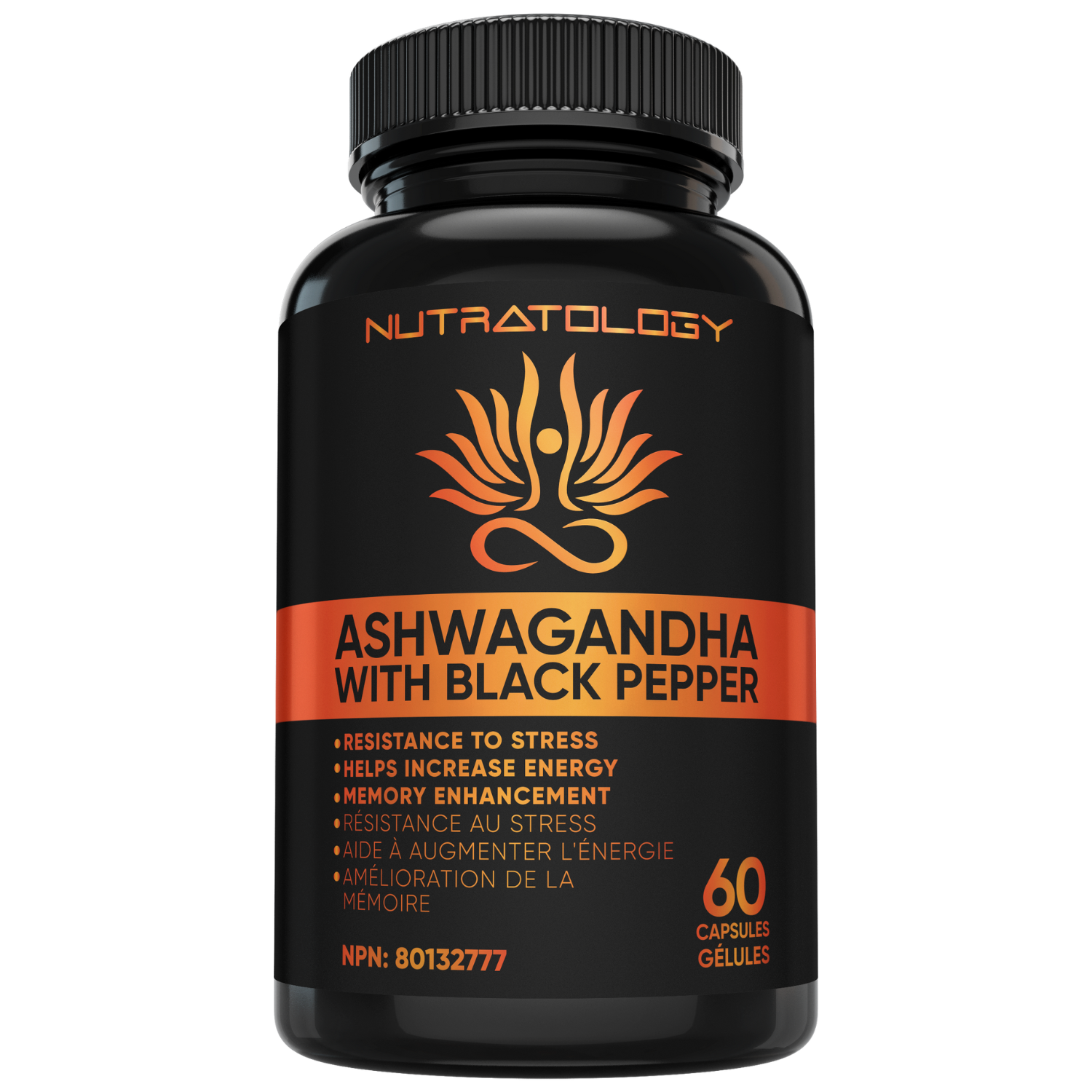
As we age, the quest for effective anti-aging solutions becomes increasingly important. Anti-aging substances are compounds that can help slow down or reverse the signs of aging, improving overall health and vitality. These substances work through various mechanisms, such as reducing oxidative stress, enhancing cellular repair, and improving skin elasticity and hydration.
Anti-aging supplements also aim to target the biological mechanisms that contribute to aging, offering benefits such as improved skin health, cognitive function, joint health, and overall vitality.
The role of antioxidants in combating oxidative stress
Oxidative stress is a significant factor in the aging process and the development of various chronic diseases. It occurs when there's an imbalance between free radicals and antioxidants in the body, leading to cellular damage. Free radicals are unstable molecules that can damage cells, proteins, and DNA by altering their structure.
Antioxidants are vital compounds that neutralize free radicals, thereby protecting the body from their harmful effects. Among the most potent antioxidants are Vitamin C, Vitamin E, and beta-carotene.
How do antioxidants help with anti-aging?
As discussed, antioxidants are compounds that protect our cells from damage caused by free radicals. Free radicals are unstable molecules that can damage cells, leading to premature aging and various diseases.
Antioxidants donate electrons to free radicals, stabilizing them and preventing them from causing further damage. This helps protect your cells and slows down the aging process.
A 2023 study published in the PubMed Central found that a diet rich in antioxidants like vitamin C and E helped improve skin elasticity and reduce wrinkles in participants.
Antioxidants aren't just about keeping your skin looking youthful. They're also essential for maintaining overall health. Research suggests they may play a role in reducing the risk of chronic diseases like heart disease, cancer, and even neurodegenerative conditions like Alzheimer's.
Here’s the thing though: Pairing a diet rich in antioxidants with other healthy habits - like regular exercise, staying hydrated, getting enough sleep, and managing stress will maximize your anti-aging efforts.
What are the best anti-aging supplements for overall health?
Among the plethora of anti-aging options available, three stand out for their scientifically-backed benefits: Resveratrol, Moringa leaf powder, and Omega-3 fish oil.
According to scientific studies, each of these has unique properties and benefits that may slow certain aging processes and help prevent age-related diseases.
1. Resveratrol: the power of antioxidants
Resveratrol is a powerful antioxidant found in red wine, grapes, and certain berries. It has garnered significant attention for its potential anti-aging properties, primarily due to its ability to fight oxidative stress and inflammation, both of which are major contributors to aging.
However, its popularity is not just based on anecdotal evidence, but numerous studies have also illuminated its potential in promoting longevity and combating age-related diseases.
A landmark study published in Nature demonstrated that resveratrol activates SIRT1, a gene associated with aging and longevity, mimicking the effects of calorie restriction which has been shown to extend lifespan in various organisms .
Another study published in Science Direct, revealed that resveratrol supplementation improved insulin sensitivity and mitochondrial function, both crucial factors in reducing the risk of age-related metabolic diseases.
Studies suggest resveratrol may activate sirtuins, proteins linked to cellular repair and lifespan extension in some organisms.
However, translating these findings to humans is complex. Most studies on Resveratrol use high doses not achievable through diet alone. Further research is needed to determine its effectiveness and optimal dosage for promoting healthy aging in humans.
Benefits of Resveratrol
Antioxidant Properties: Resveratrol neutralizes free radicals, reducing oxidative stress and cellular damage.
Anti-Inflammatory Effects: It inhibits inflammatory pathways, which can help reduce chronic inflammation linked to aging and various diseases.
Cardiovascular Health: Resveratrol has been shown to improve heart health by promoting the production of nitric oxide, which relaxes blood vessels and improves blood flow.
2. Moringa Leaf Powder: Nature's Multivitamin
This nutrient-rich powder from the Moringa oleifera tree is often touted as a superfood with anti-aging properties. Moringa leaves are packed with antioxidants, vitamins, and minerals, all of which contribute to overall health and well-being.
While no direct anti-aging studies exist yet, Moringa's unique profile offers a range of potential benefits. Its anti-inflammatory properties may be particularly helpful in age-related conditions.
Research published in the Asian Pacific Journal of Cancer Prevention highlighted the potent antioxidant activity of moringa leaf powder, which can neutralize free radicals and reduce oxidative stress, a major contributor to aging.
Moringa leaves are also rich in vitamin C and beta-carotene, both of which are essential for collagen synthesis and skin health, promoting a youthful appearance.
3. Omega-3 Fish Oil: The Heart and Brain Protector
Omega-3 fatty acids, primarily found in fish oil, are well-known for their numerous health benefits, particularly for the heart and brain.
Omega-3s are essential fatty acids that may promote healthy skin, reduce inflammation, and improve cognitive function, all of which can contribute to a more youthful appearance and overall well-being.
Research suggests Omega-3s can benefit skin health and may reduce inflammation. Studies on cognitive benefits are ongoing.
Factors that cause aging and how supplements can help
Aging is a complex process influenced by genetic, environmental, and lifestyle factors. At its core, aging involves the gradual decline of cellular function, increased oxidative stress, and the accumulation of cellular damage.
Oxidative stress occurs when there is an imbalance between free radicals (unstable molecules that can damage cells) and antioxidants (molecules that neutralize free radicals). This imbalance leads to cellular damage, contributing to the aging process.
Antioxidant supplements like Vitamin C, Vitamin E, Coenzyme Q10, and resveratrol can help neutralize free radicals, reducing oxidative stress and cellular damage.
Inflammation
Inflammation is a natural bodily response to injury or infection, designed to protect and heal. However, chronic, low-grade inflammation, often termed "inflammaging," accelerates aging, and is increasingly recognized as a significant contributor to the aging process, neurodegenerative disorders and age-related diseases
Anti-inflammatory supplements like Omega-3 fatty acids, curcumin, and resveratrol have been shown to reduce inflammation and may help slow down the aging process.
Mitochondrial function
For cellular health and longevity, mitochondrial function stands as a cornerstone, playing a crucial role in energy production, regulation of cellular metabolism, and the aging process.
In fact, mitochondria are the powerhouses of cells, producing the energy needed for cellular functions. With age, mitochondrial function declines, leading to reduced energy production and increased oxidative stress. This is where targeted supplementation can make a significant difference.
Can Resveratrol, omega-3 fatty acids and moringa leaf powder help boost mitochondrial function?
Recent research suggests that certain natural compounds, including resveratrol, omega-3 fatty acids, and moringa leaf powder, may significantly enhance mitochondrial function.
Resveratrol, a polyphenol found in grapes and red wine, has garnered substantial attention for its potential to enhance mitochondrial function. Studies have indicated that resveratrol can activate sirtuins, proteins involved in cellular energy metabolism and stress resistance. By stimulating mitochondrial biogenesis, resveratrol may contribute to increased energy production and cellular protection.
How to take resveratrol
Resveratrol is commonly available in supplement form, typically as capsules or tablets. It is also found in red wine, grapes, and berries, but obtaining therapeutic doses through diet alone is challenging.
Resveratrol recommended dosage
The optimal dosage of resveratrol is still under research, but studies suggest that a dose between 150 mg to 500 mg per day is generally safe and effective for health benefits. For example, a study published in "Cell Metabolism" highlighted that doses of 250 mg per day improved mitochondrial function and reduced inflammation in overweight but otherwise healthy people.
Omega-3 fish oil, particularly EPA and DHA, are known for their cardiovascular benefits. However, their role in mitochondrial health is equally compelling. Research suggests that omega-3 fatty acids can reduce oxidative stress, a primary culprit in mitochondrial damage. By safeguarding mitochondrial membranes, these essential fats can help maintain optimal energy production and cellular function.
Omega-3 fatty acids are integral components of mitochondrial membranes, contributing to their fluidity and functionality. A research published in Science Direct revealed that omega-3 supplementation enhances mitochondrial efficiency and reduces oxidative damage.
This study demonstrated that omega-3 fatty acids improve the activity of mitochondrial enzymes involved in energy production, ultimately boosting ATP synthesis—the cellular energy currency. Furthermore, omega-3s have been shown to reduce inflammation, which is crucial for maintaining mitochondrial integrity and preventing dysfunction associated with chronic diseases and aging.
How to take omega-3 fish oil
Omega-3 fish oil supplements are widely available in liquid, capsule, and softgel forms. It's essential to choose high-quality products that contain EPA (eicosapentaenoic acid) and DHA (docosahexaenoic acid), the two most beneficial types of omega-3 fatty acids.
Omega-3 fish oil recommended dosage
The American Heart Association recommends an intake of about 1,000 mg of EPA and DHA combined per day for general health. For individuals with specific health conditions, such as high triglycerides, higher doses ranging from 2,000 mg to 4,000 mg per day may be recommended under the supervision of a healthcare provider.
Moringa leaf powder has emerged as a promising supplement for mitochondrial support. Rich in antioxidants, vitamins, and minerals, Moringa has demonstrated the potential to protect mitochondria from oxidative damage. While research is still in its early stages, preliminary studies suggest that Moringa may enhance mitochondrial biogenesis and function.
Moringa leaf powder is derived from the Moringa oleifera tree, and is a nutrient-dense superfood that has been traditionally used for its medicinal properties. Rich in antioxidants, vitamins, and minerals, Moringa Leaf Powder provides essential nutrients that combat oxidative stress and promote cellular health.
How to take moringa leaf powder
Moringa Leaf Powder can be consumed in various ways, including adding it to smoothies, juices, or sprinkled over food. It is also available in capsule and tablet form for those who prefer a more convenient option.
Moringa leaf powder recommended Dosage
A common dosage for Moringa Leaf Powder is 1 to 3 teaspoons (2 to 6 grams) per day.
A study published in "Journal of Engineering Science & Technology" highlighted that Moringa supplementation enhances mitochondrial respiration and biogenesis, akin to the effects observed with resveratrol. The study also noted Moringa's role in activating pathways that mitigate oxidative stress, further safeguarding mitochondrial function. These findings suggest that Moringa leaf powder not only nourishes the body but also fortifies the cellular powerhouse, ensuring efficient energy production and overall vitality.
Conclusion
Resveratrol, omega-3 fatty acids, and moringa leaf powder each offer unique benefits that collectively support and enhance mitochondrial function. Resveratrol's activation of mitochondrial biogenesis pathways, omega-3 fatty acids' role in maintaining mitochondrial membrane integrity, and moringa leaf powder's rich nutrient profile creates a powerful combination for boosting cellular energy and metabolic health.
Incorporating these natural compounds into one's diet may therefore provide a comprehensive strategy for improving mitochondrial efficiency and overall vitality. Further studies are essential to fully understand their impact on mitochondrial health, optimal dosages, and potential interactions with other supplements or medications. It's crucial to consult with a healthcare professional before incorporating these supplements into your routine.

 Log in
Log in
